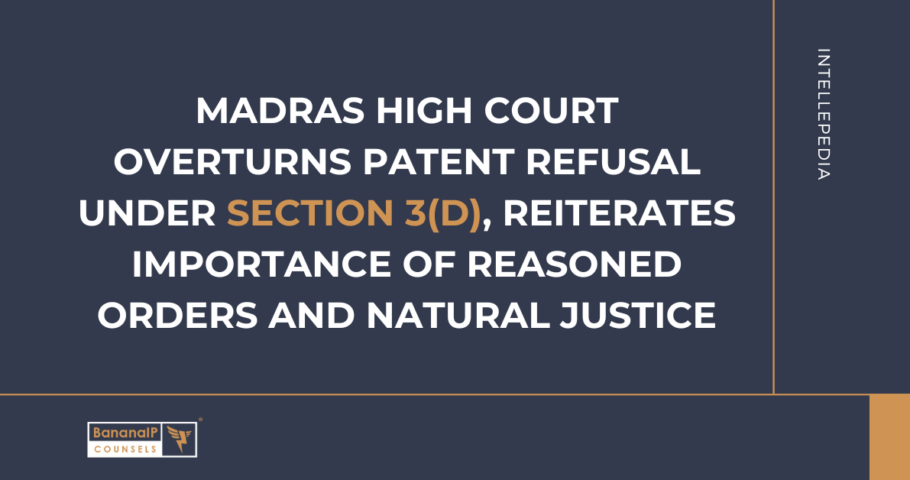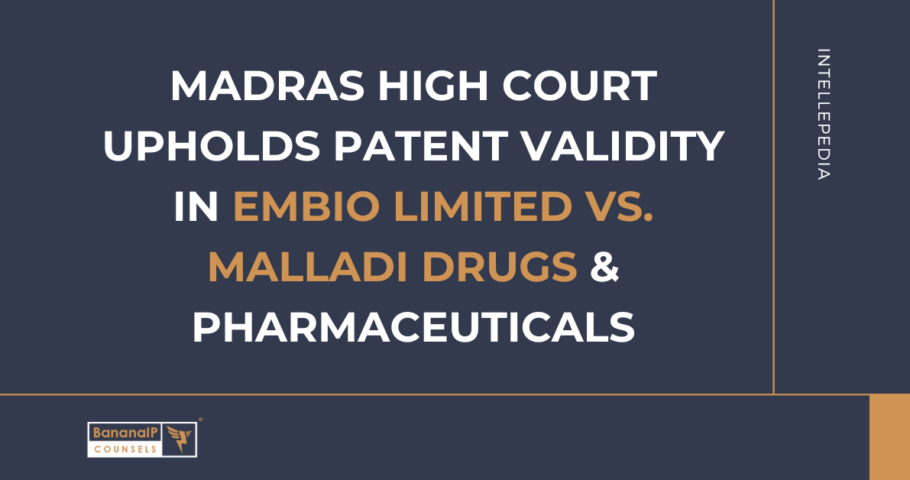The Madras High Court overturned the Controller’s refusal of Intervet International’s patent application, underscoring the importance of natural justice and reasoned orders in patent proceedings. The case involved complex issues under Sections 3(d) and 3(e) of the Patents Act, with the Court remanding the matter for reconsideration. Continue Reading Madras High Court Overturns Patent Refusal under section 3(d), Reiterates Importance of Reasoned Orders and Natural Justice










